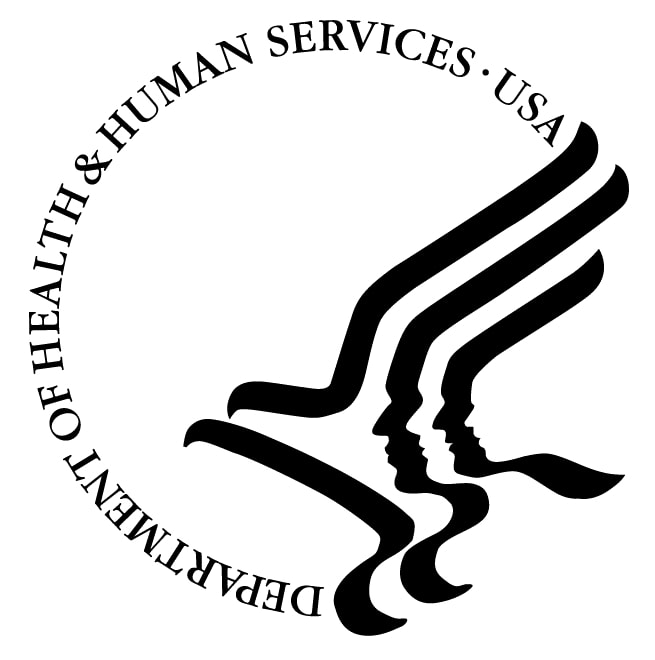Why Would I Get A Package From U.S. Dept HHS?
Receiving a package from the U.S. Department of Health and Human Services (HHS) can be both surprising and intriguing. Whether it's related to public health initiatives, government assistance programs, or specific health-related campaigns, understanding why you might receive such a package is essential. In this article, we'll explore the possible reasons and provide clarity on what to expect.
The U.S. Department of Health and Human Services plays a critical role in safeguarding the health and well-being of Americans. As part of its mandate, the department often sends informational materials, medical supplies, or other resources to individuals or organizations. Knowing the context and purpose behind these packages can help you better understand their significance.
Whether you're curious about public health campaigns, government initiatives, or personal health-related deliveries, this article will provide a comprehensive overview of why you might receive a package from the U.S. Dept HHS and what it could mean for you.
Read also:Bobo Funeral Home Spartanburg Sc A Legacy Of Compassion And Service
Table of Contents
- Why Would I Get a Package from U.S. Dept HHS?
- What Is the U.S. Department of Health and Human Services?
- Common Reasons for Receiving a Package from HHS
- Public Health Initiatives and Campaigns
- Government Assistance Programs
- Personal Health Deliveries
- How to Verify the Authenticity of the Package
- What to Do If You Receive a Package
- Privacy and Security Concerns
- Conclusion
What Is the U.S. Department of Health and Human Services?
The U.S. Department of Health and Human Services (HHS) is a federal agency responsible for protecting the health of all Americans and providing essential human services. Established in 1953, HHS oversees a wide range of programs, including public health initiatives, healthcare services, and social welfare programs. The agency plays a crucial role in addressing health-related issues at the national level.
HHS operates through various sub-agencies, such as the Centers for Disease Control and Prevention (CDC), the Food and Drug Administration (FDA), and the National Institutes of Health (NIH). These organizations work together to promote health, prevent disease, and ensure the safety of medical products and services.
Key Responsibilities of HHS
- Public health education and awareness
- Regulation of healthcare services and products
- Management of federal health programs like Medicare and Medicaid
- Research and development of medical innovations
Common Reasons for Receiving a Package from HHS
There are several reasons why you might receive a package from the U.S. Dept HHS. These packages can range from informational materials to tangible items designed to support public health efforts or individual needs.
Public Health Campaigns
HHS frequently sends out materials as part of public health campaigns. These materials may include brochures, educational resources, or even free health-related products. For example, during a flu outbreak, HHS might send informational pamphlets or free flu masks to promote awareness and prevention.
Government Assistance Programs
If you are enrolled in a government assistance program like Medicaid or Supplemental Nutrition Assistance Program (SNAP), you may receive packages related to these programs. These packages often contain important documents or resources to help you manage your benefits.
Research Participation
If you have participated in a research study conducted by HHS or one of its sub-agencies, you might receive a package containing study materials or follow-up information. These packages are designed to keep participants informed and engaged throughout the research process.
Read also:Comenity Zales Account A Comprehensive Guide To Understanding And Managing Your Credit
Public Health Initiatives and Campaigns
One of the primary functions of HHS is to promote public health through various initiatives and campaigns. These efforts aim to educate the public, prevent disease, and improve overall health outcomes. Receiving a package from HHS could be part of these broader initiatives.
Examples of Public Health Campaigns
- Vaccination drives and awareness campaigns
- Chronic disease prevention programs
- Mental health awareness initiatives
For instance, during the COVID-19 pandemic, HHS distributed free at-home testing kits to help individuals monitor their health. Such initiatives demonstrate the agency's commitment to protecting public health.
Government Assistance Programs
Many individuals and families rely on government assistance programs to meet their healthcare and nutritional needs. HHS oversees several of these programs, and receiving a package from the agency could be related to your participation in one of them.
Medicaid
Medicaid is a joint federal and state program that provides health coverage to millions of Americans. If you are enrolled in Medicaid, you might receive packages containing important documents, such as enrollment updates or new benefit information.
SNAP
The Supplemental Nutrition Assistance Program (SNAP) helps low-income individuals and families access nutritious food. Packages from HHS related to SNAP might include information on program changes or resources to help you make the most of your benefits.
Personal Health Deliveries
In some cases, HHS may send personalized health-related deliveries to individuals. These packages could include medical supplies, educational materials, or resources tailored to your specific health needs.
Free Health Screenings
HHS often partners with local health organizations to offer free health screenings. If you have signed up for one of these screenings, you might receive a package containing instructions, forms, or even free testing kits.
Chronic Disease Management
For individuals managing chronic conditions, HHS may send packages with resources to help you better manage your health. These could include educational materials, medication reminders, or links to support groups.
How to Verify the Authenticity of the Package
With the rise of scams and phishing attempts, it's important to verify the authenticity of any package you receive from HHS. Here are some steps you can take:
- Check the sender's address and contact information
- Look for official HHS logos and branding
- Contact HHS directly to confirm the package's legitimacy
HHS provides resources on its official website to help individuals verify the authenticity of packages and communications. Always exercise caution and report any suspicious activity to the appropriate authorities.
What to Do If You Receive a Package
If you receive a package from the U.S. Dept HHS, here are some steps to follow:
- Inspect the package for official markings and branding
- Read the contents carefully to understand the purpose of the package
- Contact HHS if you have any questions or concerns
It's important to remain informed and proactive when dealing with government communications. If the package contains important documents or resources, make sure to store them in a safe place for future reference.
Privacy and Security Concerns
Receiving a package from HHS raises important questions about privacy and security. The agency takes these concerns seriously and adheres to strict guidelines to protect personal information.
Data Protection Measures
HHS implements robust data protection measures to ensure the privacy and security of individuals' information. These measures include encryption, secure data storage, and strict access controls.
Reporting Privacy Violations
If you believe your privacy has been compromised, you can report the issue to HHS through its official channels. The agency encourages individuals to report any suspected privacy violations to help maintain the integrity of its programs and services.
Conclusion
Receiving a package from the U.S. Dept HHS can be an opportunity to learn more about public health initiatives, government assistance programs, or personal health resources. By understanding the reasons behind these packages and taking appropriate steps to verify their authenticity, you can make the most of the information and resources provided.
We encourage you to explore further by visiting the official HHS website and staying informed about the latest health-related news and updates. If you found this article helpful, please share it with others and leave a comment below. Your feedback helps us improve and provide more valuable content in the future.
References:
- U.S. Department of Health and Human Services. (n.d.). About HHS. Retrieved from https://www.hhs.gov/about/index.html
- Centers for Disease Control and Prevention. (n.d.). Public Health Campaigns. Retrieved from https://www.cdc.gov/campaigns/index.html
- Medicaid.gov. (n.d.). Medicaid Overview. Retrieved from https://www.medicaid.gov/

